NATO is an alliance not only of interests but also of values
Szöveg: Ministry of Defence | 2015. november 30. 14:00Speaking at an international NATO conference held in the Hungarian Parliament on Friday, 27 November, Minister of Defence Dr. István Simicskó said that “in the face of 21st century challenges, NATO has welded into an alliance not only of interests but also of values”.
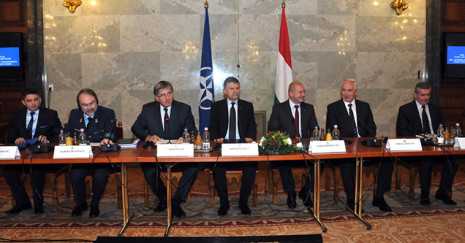
In his speech delivered at the conference entitled “NATO 2015 – Defence and Security Adaptation", the Minister of Defence said that besides new threats, the old ones are also present in today’s world, and the Alliance must defend its member states and their citizens against all these threats. “In my opinion, NATO was created to promote a good cause and has been serving it since its establishment", he emphasized, adding that it should not be forgotten that the Alliance and the armed forces are made up of men, therefore the soldiers serving their country must be held in high esteem.
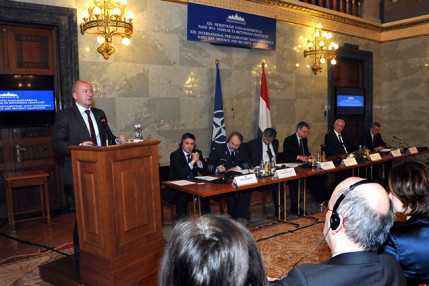
He also said that the current wave of migration in Europe may have unforeseeable consequences in terms of security and culture, so it must be dealt with in any case. According to the Minister of Defence, today’s biggest threat is terrorism, and so we must find adequate responses to it and establish a framework for taking effective action against terrorist organizations. Mr. István Simicskó stated that “we must close our ranks, while we need to preserve NATO’s deterrence capability as well". He added that that is why Hungary undertook to increase its defence budget and develop the Hungarian Defence Forces. He pointed out that Hungary has already done a lot for the Alliance, as 1,000 Hungarian troops are serving with foreign missions, and it is also making sacrifices for the security of Europe by protecting the borders of the Schengen Area.
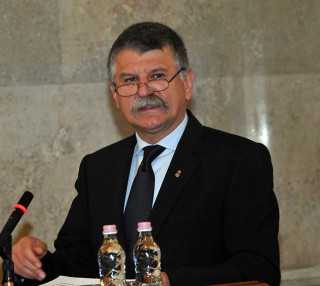
In his speech, Speaker of the House Mr. László Kövér said that the North Atlantic Alliance has worked in a continuously changing security environment over the last few years, and collective defence has recently become particularly important again. At the same time, NATO remains united in strengthening transatlantic cohesion and solidarity.
“These days, we must also show solidarity with those states that feel threatened directly, be it about the military threats to the Baltic region, Poland and other allies, or the rise of terrorism and radicalism in faraway regions", he added.
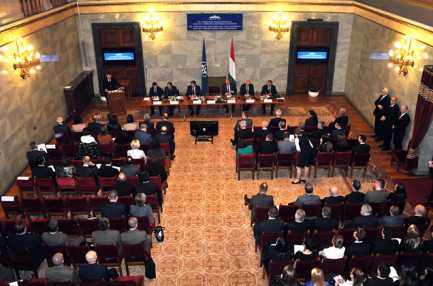
Speaking about the refugee crisis, he noted that it can only be dealt with at the root of the problem, so North Africa and certain parts of the Middle East need to be given assistance with restoring failed states. He added that although the handling of the migration crisis lies beyond NATO’s scope, the Alliance must support stability in the above-mentioned regions through its partnership relations and means.
The Speaker of the House underlined that in the next period, increased emphasis must be placed on meeting the above challenges, and apart from politicians and military organizations, civilians, too, must assume an important role in this process, namely in enhancing the resistance of society.
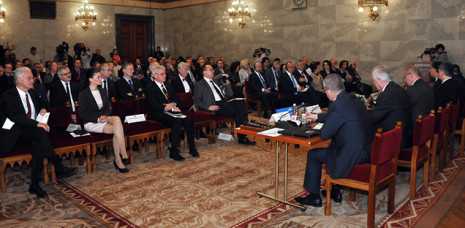
At the conference held in the Delegation Hall of Parliament Building, the speakers included, among others, President of the Hungarian Atlantic Council Szilveszter E. Vizi, Chairman of the National Assembly Foreign Affairs Committee Zsolt Németh, Deputy State Secretary for Defence Policy and Planning at the Ministry of Defence Péter Siklósi and Lt.-Gen. Dr. Zoltán Orosz, Deputy Chief of Defence.
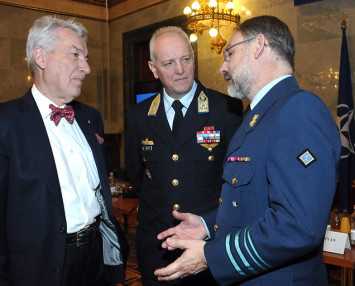
Photos by László Tóth